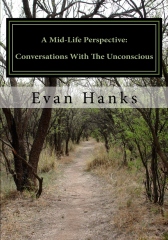For those interested in new interpretations of old ideas, this post describes a very different kind of book, many years in its development. If you choose to read it, if you’re interested in the relations between conscious and unconscious, between man and nature, science and religion, it will be among the most original books you’ll ever read. It will likely upset your ideas of what your mind is for, just as it upset mine when I was forced by my own illusions (and those I inherited) to come to terms in some way with the unconscious.
It’s well known that new and original ways of looking at things take time to sink in, at least for those revolving around the self-flattering notions of who we think we are — or should or would be. Centuries-old religious ideals convince us even today that we can be who we “should” or would be, simply by believing it. This is the age-old way of ego, and most will remain convinced of its illusion as a defense against the unconscious — or, if you prefer, a God who makes demands on us and not just a comforting image of wishful thinking in times of despair.
The scientific view is equally convinced of this same illusion, having inherited it as duly as one is born with eyes and ears. Though, with no conception of a Deity but only an unconscious will to power, it seeks to “conquer” an external nature without taking serious note that she also works within; and dangerously so, for the double-sided hubris of humanity has been recorded since biblical times. The artificial reality we’ve spent millennia to achieve has become so toxic today, however, the current form of education will not much longer support it…
Based on the psychology of C. G. Jung and inspired by Goethe’s Faust, this book is a poetic description of the change in perspective prompted by the mid-life transition. For many, it will be only an odd curiosity. But for those who are deeply moved by this process, to confront the strange, symbolic figures which lead into the collective unconscious, this book will serve as a living example of the ideas and emotions encountered when an exchange, a dialogue, is entered into with the other side.
The subtitle, A Subjective Study of Science, Religion, and Consciousness, reflects the spiritual character of the philosophical depths to which these figures point; for as Jung wrote: because the unconscious consists of a living history of our mental functioning, any serious inquiry into it leads straight into the religious problem.
This problem is grounded in the opposites, and old religious ideas of good and evil still form the foundations of our world-views, whether we accept them consciously or not. They’re how we secretly see ourselves; how we relate to a greater whole both within and without, formed over centuries of intense concentration on the puzzling contradictions of subjective thought.
A major shift in values marks today’s fascination with science and technology, and the spiritual/emotional functions it ignores and represses only multiply the unforeseen consequences they create. The wisdom required to comprehend them is not accessible to the blind quest for rational facts — as if they alone would reconcile the inner division which is our fate.
Lacking an orientation to the inner counter-pole of the unconscious, we can only relate to it through the old concepts. But, these no longer suffice the complexity, the subtlety and diversity, the relativity of the changes taking place today. Without serious re-examination of our repressive view of nature and the psyche, we are only led deeper into the hidden snares which threaten from the dark shadows of an unconscious earthly reality.
Today, information and knowledge have become compensations for wisdom. The paradox is that the wisdom we need is secreted away in the knowledge we’ve repressed: the undeveloped soul of a human animal who yet sees nature as an antagonist and cannot accept the double laws of her demands. As a return for that, we’ve become our own greatest problem — and nature’s as well.
This book isn’t a remedy for this problem. It’s a way to identify and accept it; to find new ways to confront it; to enter a new psychological stage in nature’s ceaseless urge for development.

